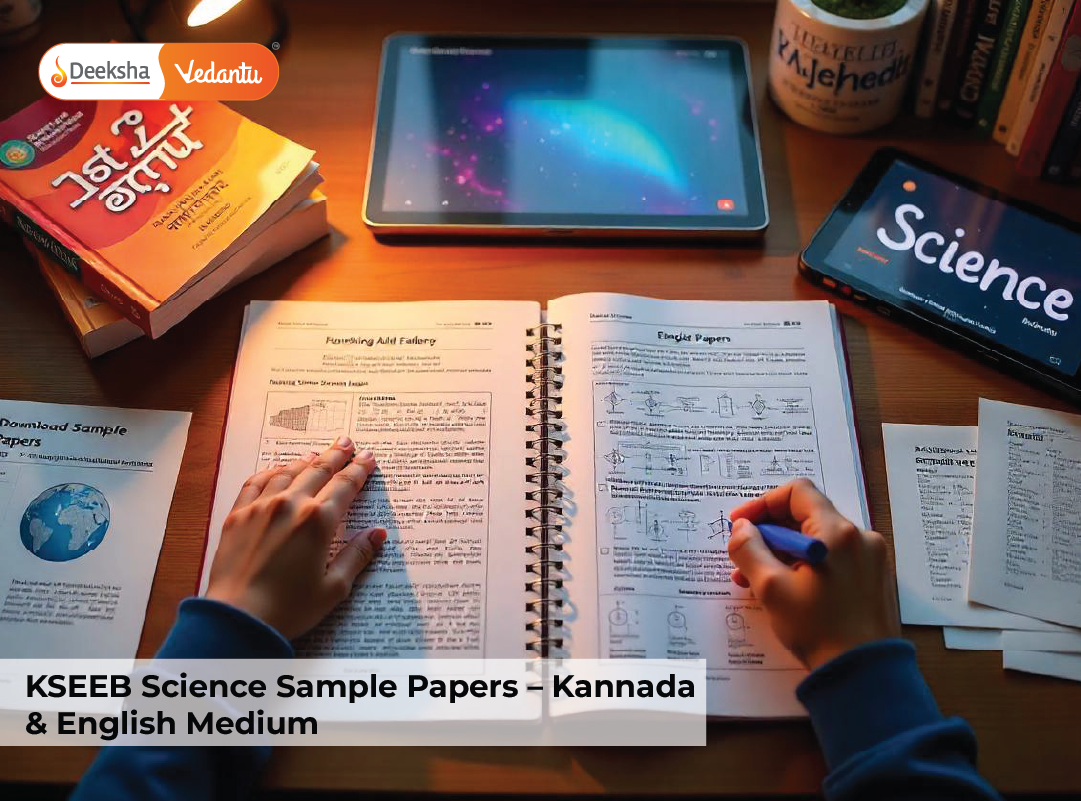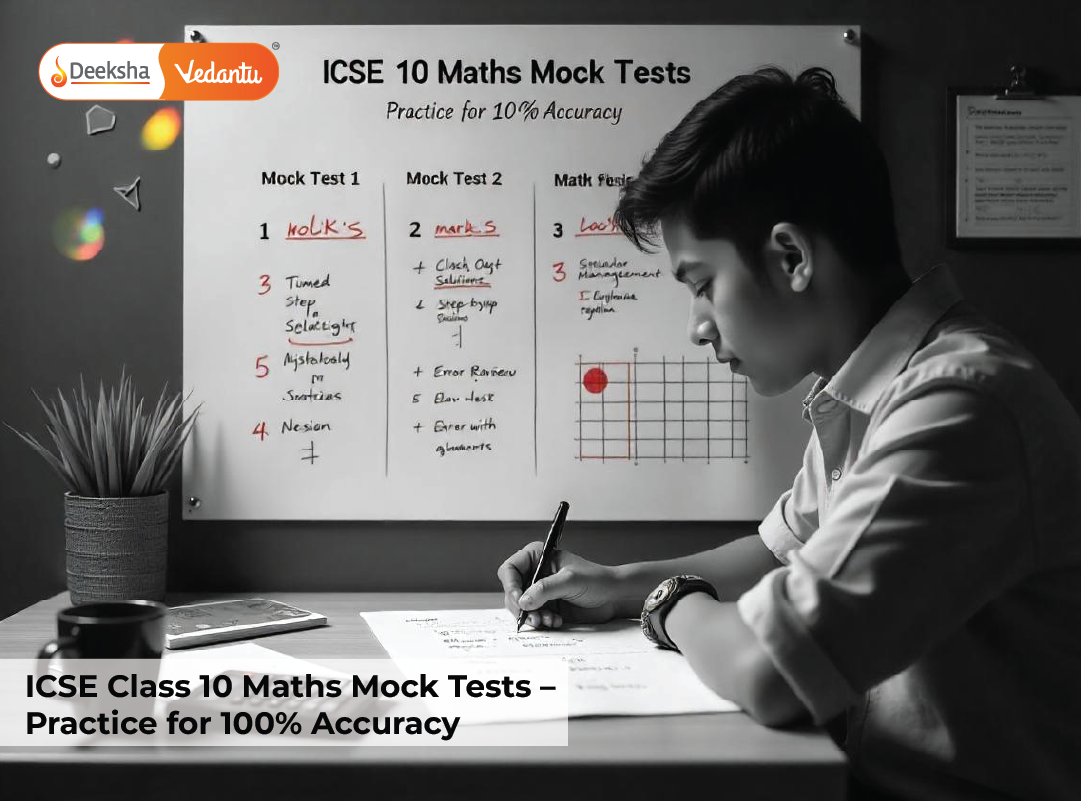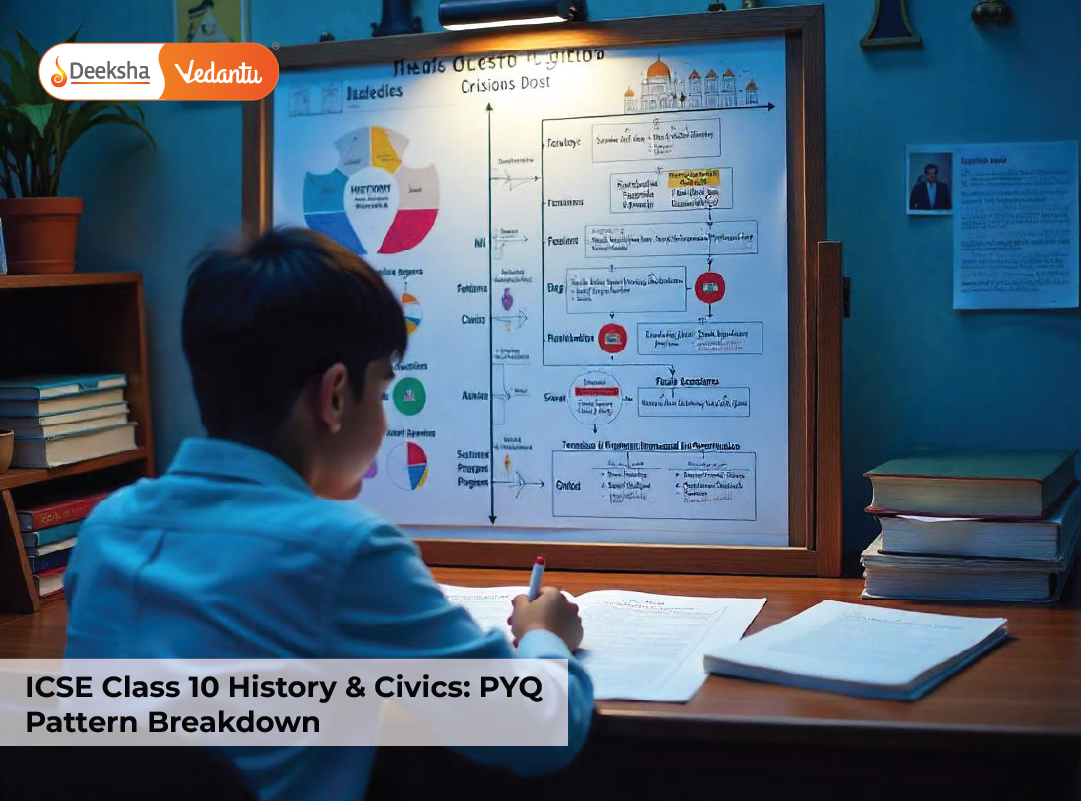Preparing for Class 10 board exams can feel overwhelming — the syllabus is vast, expectations are high, and the pressure to perform is real. But there’s one strategy that has consistently helped students overcome their fears and improve their scores: solving question papers before exams.
At Deeksha Vedantu, we strongly encourage students to incorporate regular paper-solving into their study routine. This blog will walk you through the powerful benefits of solving Class 10 question papers, what types you should practice, and how to make the most of this method.
Why Practice Makes Perfect for Class 10 Boards
Importance of Practice in Board Exam Preparation
While understanding concepts is important, practicing how to apply them is what truly builds mastery. Solving question papers transforms theoretical knowledge into real-world exam readiness. It forces students to:
- Recall and apply concepts under pressure
- Learn how to structure their answers
- Understand the weightage of topics based on past patterns
How Question Paper Solving Builds Exam Temperament
Board exams are as much about mental stamina as academic knowledge. When students solve papers regularly, they:
- Develop focus for 3-hour durations
- Learn to stay calm during tricky sections
- Reduce anxiety by simulating real exam environments
This psychological readiness is a game-changer for performance.
Key Benefits of Solving Class 10 Question Papers
Understand the Real Exam Pattern
Question papers — especially previous year and sample papers — help students:
- Understand how marks are distributed
- Know which sections carry more weight
- See how questions are framed (MCQs, short answer, long answer)
This clarity removes uncertainty and helps students prepare smarter.
Improve Time Management Skills
Time is a major factor during board exams. Practicing papers enables students to:
- Allocate time per section or question type
- Avoid spending too long on one question
- Build a sense of exam pacing
Many students know the answers but still lose marks due to poor time planning — solving papers fixes that.
Identify Strengths and Weaknesses
After solving papers, students can reflect and ask:
- Which subjects or chapters take more time?
- Where are mistakes recurring?
- Which concepts are still unclear?
This helps prioritize revision for weaker areas while reinforcing stronger ones.
Boost Confidence and Reduce Exam Fear
When students regularly solve complete papers:
- They experience what the real exam feels like
- Their performance improves with each attempt
- Confidence grows because the fear of the unknown disappears
The shift from “Will I be able to do it?” to “I’ve already done this multiple times” is a powerful one.
Revise Smartly and Strategically
Solving papers is not just practice — it’s also revision in disguise. Instead of reading the same notes repeatedly, solving questions from:
- Previous year trends
- Most asked topics
- Repeated question types
helps students retain information more efficiently.
Different Types of Question Papers to Solve
Previous Year Question Papers
These are actual board papers from the past. They help students:
- Analyze topic frequency
- Understand real question phrasing
- Build familiarity with marking schemes
They are ideal for final-month preparation.
Sample Papers
These are official or expert-created mock versions of likely upcoming papers. They:
- Reflect current syllabus and blueprint
- Introduce new question formats
- Help students adapt to possible changes
Use sample papers throughout the year for regular checkpoints.
School Pre-Board Papers and Model Sets
Most schools conduct pre-boards to simulate the actual board exam. In addition,
- Model test papers created by coaching institutes or experts provide extra variety
- Solving these enhances adaptability
At Deeksha Vedantu, we use a mix of all three to prepare students comprehensively.
Tips to Maximize the Value of Question Paper Practice
Create Exam-Like Conditions
Don’t solve papers casually. Instead:
- Sit in a quiet room
- Use a pen and paper
- Avoid referring to books while writing
This makes the experience authentic and builds exam discipline.
Time Yourself Strictly
Always keep a clock or timer beside you. If the board exam is 3 hours, finish within that limit. This:
- Builds speed
- Improves decision-making under time pressure
- Prepares you to complete all questions
Self-Evaluate with Marking Schemes
After solving the paper:
- Compare your answers with official marking
- Note where you lost marks
- Track your improvement over
This is critical for learning from mistakes.
Repeat with Varied Paper Types
Don’t just stick to one kind of paper. Instead:
- Rotate between PYQs, sample papers, and model tests
- Solve topic-wise papers for weak subjects
- Attempt full-length papers in the final weeks
Variety builds comprehensive readiness.
How Deeksha Vedantu Helps Students with Paper Practice
Structured Test Series for Class 10
At Deeksha Vedantu, we integrate question paper practice into our core study plan. Our students receive.
- Weekly mock exams
- Chapter-wise tests
- Subject-specific timed assessments
These are created based on a blend of CBSE, Karnataka SSLC, and expert-level analysis.
Detailed Feedback and Performance Analysis
Each test isn’t just marked — it’s evaluated. We provide:
- Answer sheets with faculty feedback
- Error tracking dashboards
- Suggestions for improvement
This transforms testing into a personal growth tool.
Expert-Curated Question Banks for Smarter Revision
Our in-house academic team curates:
- Most expected questions
- Frequently repeated patterns
- High-weightage topic compilations
Students are guided to solve these strategically throughout the year.
FAQs
1. How many question papers should I solve before Class 10 boards?
Aim for at least 10 full-length papers (PYQs + sample papers) and chapter-wise practice sets from each subject.
2. Is solving previous year papers enough?
They are essential but not enough alone. Combine them with sample papers, regular revision, and NCERT-based practice.
3. When should I start solving question papers?
Start early with sample papers (around October), and intensify with previous year papers in the last 1–2 months before exams.
4. Should I write answers fully or just plan them?
Always write full answers — including diagrams, steps, and explanation — to simulate actual exam practice.
5. Can I improve marks just by solving question papers?
Yes, many students see a 10–15% improvement by solving and evaluating papers consistently before exams.
Conclusion
Solving Class 10 question papers before exams isn’t just a tip — it’s a proven success strategy.
It helps you understand the pattern, manage time, reduce anxiety, and revise effectively. At Deeksha Vedantu, we incorporate paper-solving deeply into our academic model to ensure every student walks into the exam hall fully prepared, confident, and calm.
If you’re a Class 10 student preparing for your board exams, start solving papers early — and stick with it. It could be the difference between a good score and a great one.
Table of Contents















Get Social